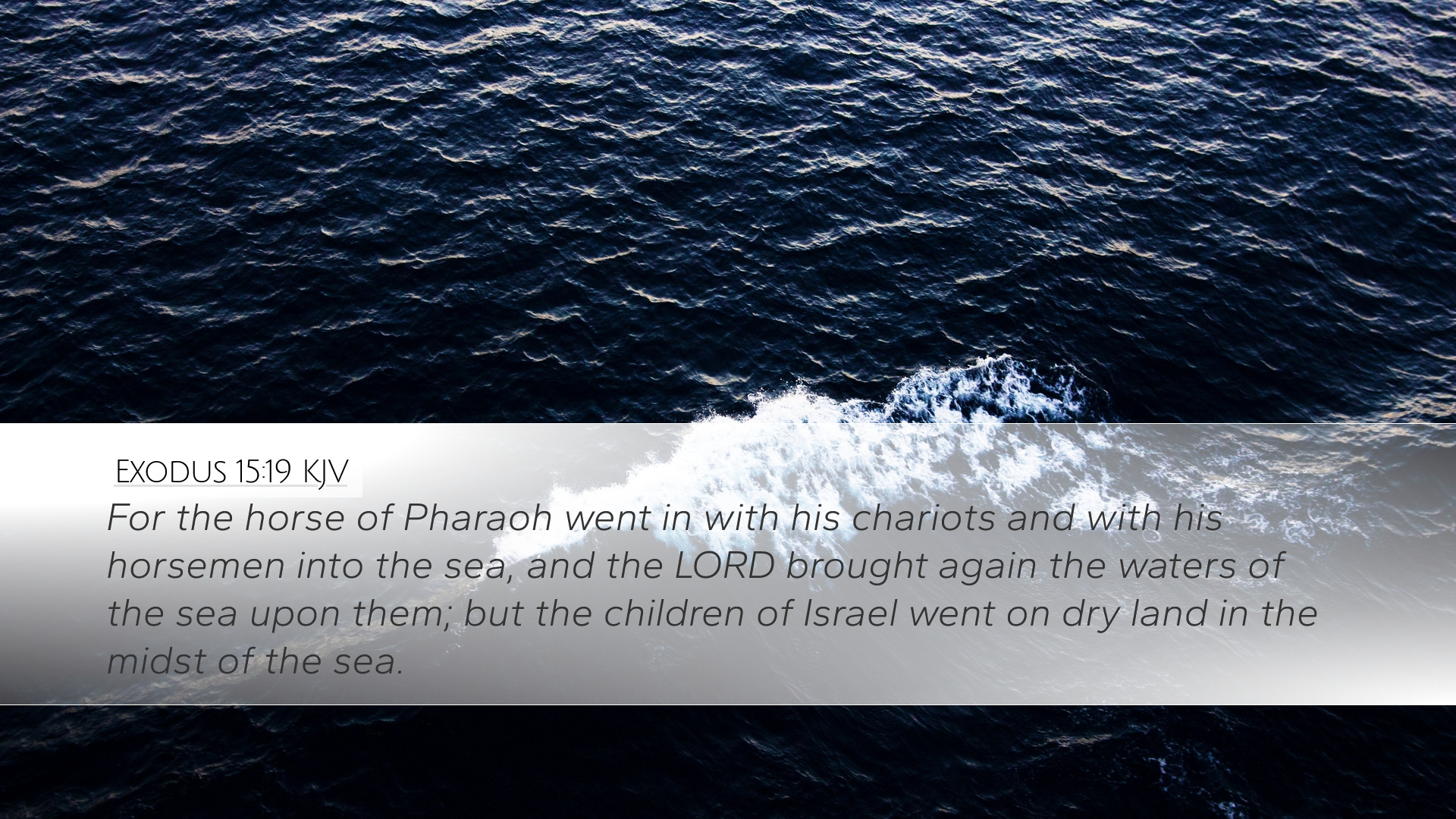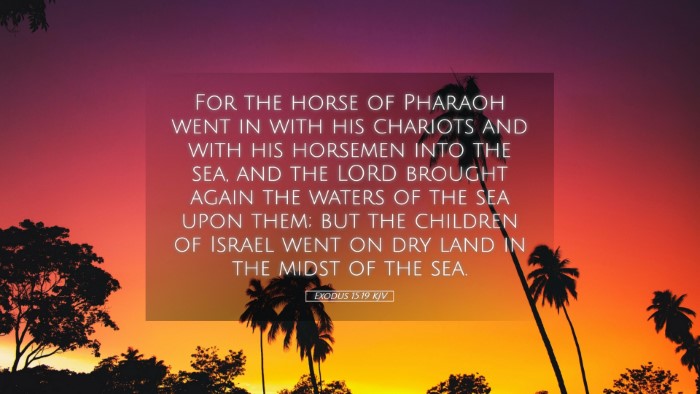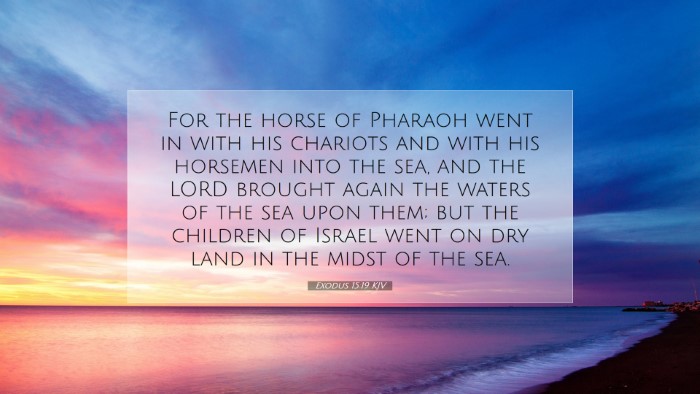Exodus 15:19 Commentary
Verse: Exodus 15:19
"For the horse of Pharaoh went in with his chariots and with his horsemen into the sea, and the LORD brought again the waters of the sea upon them; but the children of Israel went on dry land in the midst of the sea."
Introduction
This verse is a striking reminder of God’s power in delivering His people from bondage. The context falls within the Song of Moses, a celebratory song sung after the Israelites' miraculous crossing of the Red Sea. Within this verse, we find a juxtaposition of divine protection over Israel and divine judgment upon the Egyptians. Commentary from respected theologians offers a rich tapestry of insights into the significance of this event.
Historical Context
The escape from Egypt was marked by signs and wonders, culminating in the parting of the Red Sea. The significance of this event cannot be overstated, as it established God's faithfulness to His covenant with Israel. Matthew Henry emphasizes that this event declares the Lord’s unmatched power and serves as a reminder to His people of His ability to save against formidable odds.
Theological Insights
Exodus 15:19 encapsulates the theology of judgment and redemption. Here are several points made by notable commentators:
- Matthew Henry: Henry points out the nature of divine retribution executed against Pharaoh and his forces. He highlights that the same waters which provided a pathway for the Israelites turned into an instrument of judgment against their oppressors.
- Albert Barnes: Barnes elaborates further, attributing the success of Israel's passage to God's sovereignty. He indicates that the phrase "the LORD brought again the waters of the sea upon them" is critical, as it underscores that every aspect of the events was orchestrated by God's will. The divine orchestration emphasizes God’s control over all creation.
- Adam Clarke: Clarke brings attention to the contrasting responses of the two groups: Pharaoh's army, in their pride and pursuit, and the Israelites, who moved forward in faith. Clarke suggests that the passage teaches about the nature of God's deliverance, presenting a clear lesson about reliance upon Him for safety amid danger.
Symbolism of the Waters
The imagery of water holds great symbolic significance throughout the passages of Scripture. The waters represent chaos and judgment, while the dry land symbolizes salvation and safety. Matthew Henry notes that the dry ground is a token of God's grace, where the vulnerability of Israelites was met with divine provision.
Applications for Pastors and Theologians
This verse offers profound applications for pastors and theologians alike:
- The Nature of God: Understanding God's dual role as a protector and a judge is essential in theological discourse, underlining the necessity of faith and obedience.
- Faith in Crisis: The Israelites were called to step forward when confronted with the Red Sea. This illustrates the necessity of taking leaps of faith despite daunting obstacles, a relevant message for churches today.
- Divine Sovereignty: Recognizing God's sovereign hand in both salvation and judgment provides comfort to believers, affirming that God remains in control no matter the situation.
Conclusion
Exodus 15:19 not only recounts historical events but also provides rich avenues for theological exploration and personal reflection. The defeat of Pharaoh's army at the Red Sea is a vital historical act of God that reaffirms His covenant with Israel and serves as a prototype of ultimate deliverance through Christ. As pastors and scholars meditate on this verse, may it lead to deeper understanding and appreciation of God's unyielding faithfulness to His people.


